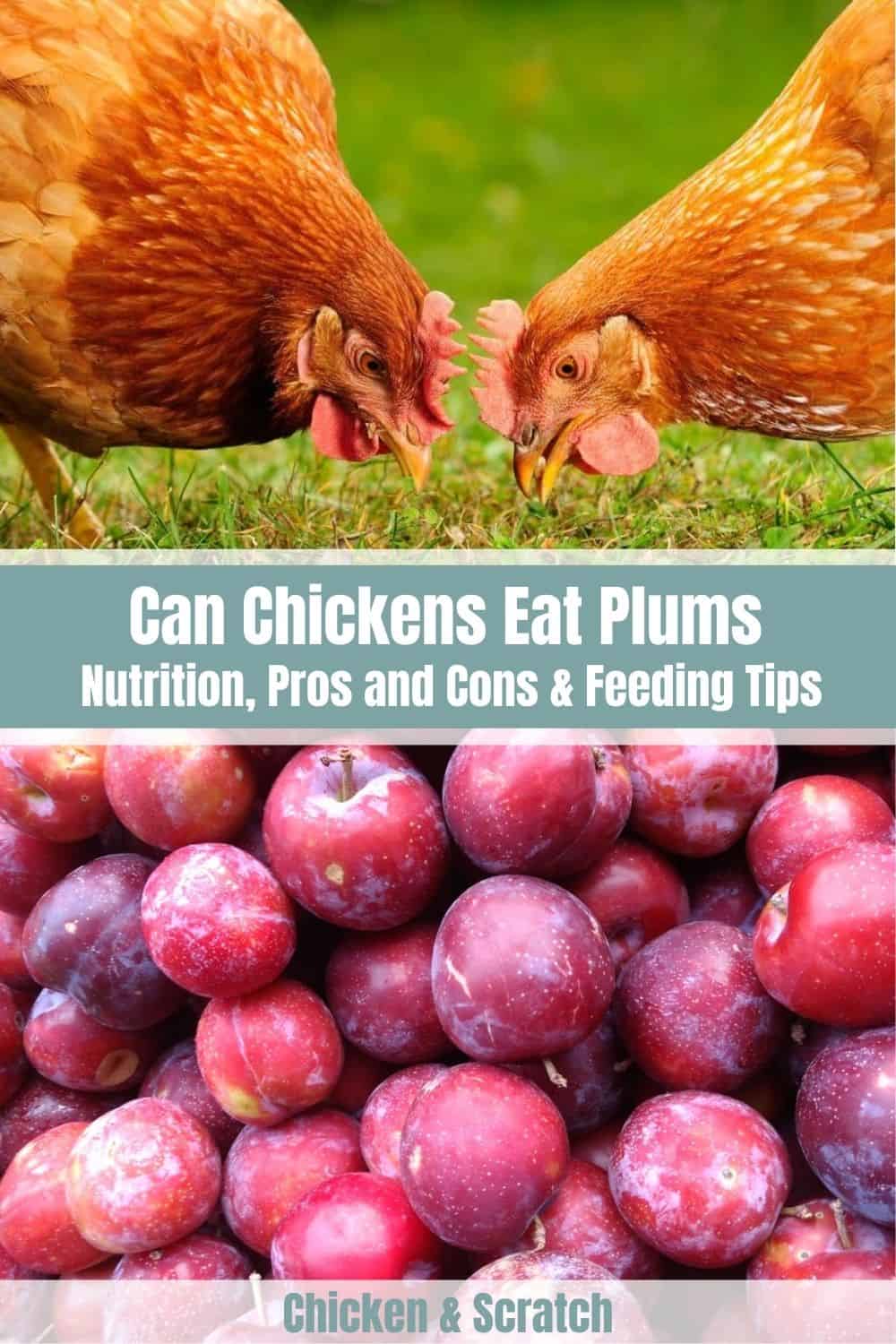To help your chickens meet their nutritional needs, you must give them alternative foods. Fruits are an excellent way to nourish them. They’ll surely go crazy for these sweet, tasty snacks.
However, not all fruits are safe for chickens. Can they eat plums, for instance?
Are plums healthy for chickens?
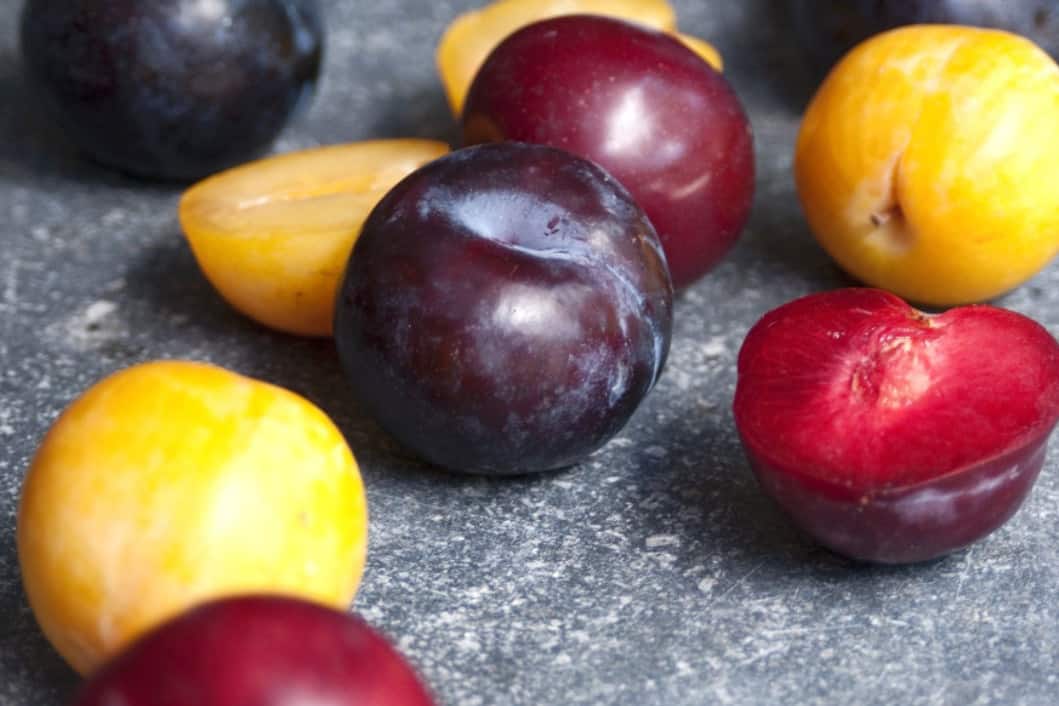
Chickens can eat plums as a healthy snack. Plums, known for their nutrients and juicy flesh, are often irresistible to chickens.
When you treat your chickens with plums, here are some health benefits that they could get:
Plums are rich in antioxidants
Antioxidants are essential for your chickens’ general health. This compound helps to combat free radicals which harm cells in the body, to keep them safe from a variety of diseases.
Plums boost the immune system
Plums contain a lot of vitamin C. This vitamin helps boost your chickens’ immune system so they will have a healthier heart and be less prone to sickness. If they become ill, provide them with vitamin C to reduce inflammation and help them recover faster.
According to a study, plums offer immune-enhancing properties. When plums are included in a chicken’s diet, it helps prevent coccidiosis, a parasitic condition that affects a chicken’s intestinal tract.
Plums improve digestion
Plums are rich in fibers, most of which don’t dissolve with water. When chickens eat plums, fibers help promote regular bowel movement and prevent constipation.
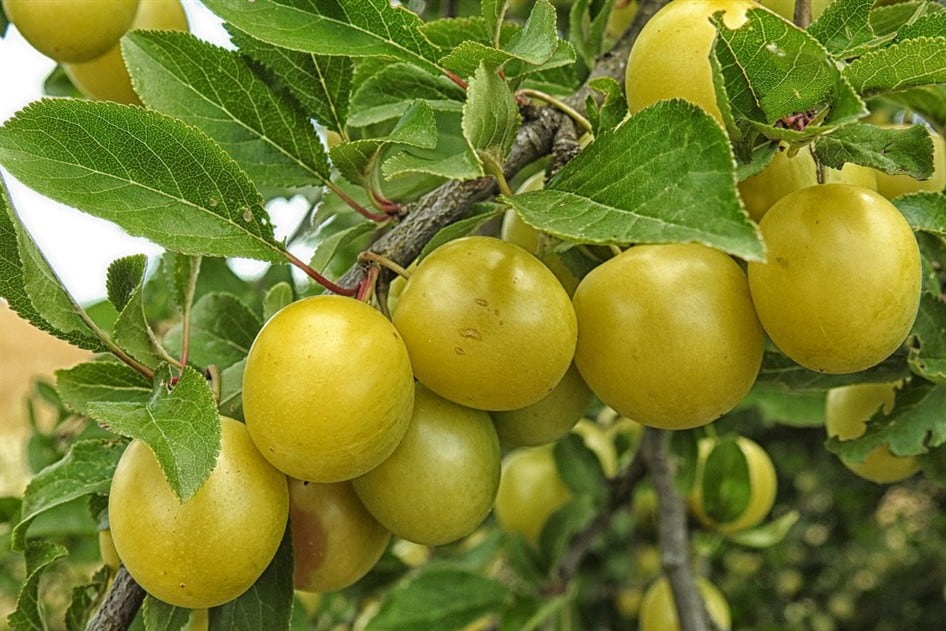
Plums promote your chicken’s overall health
Listed below are nutrients and minerals which can help improve the general health of your chickens to make them healthy and more active.
- Vitamin A – Vitamin A is required for the proper function of mucus-producing glands in chickens, such as the nose, esophagus, and inner eyelid.
- Vitamin K – A chicken’s blood coagulation can be affected by a deficiency of vitamin K in its diet. This means that if your chicken is injured and begins bleeding, it will be difficult to stop the clotting.
- Sorbitol – Sorbitol has been shown to decrease cholesterol in chickens in studies. It can also be used to help broiler hens that are being bred for meat gain weight.
- Potassium – Potassium helps with egg production and lowers heat stress in hot weather.
- Calcium – Laying hens require calcium to lay their eggs. Your hens will eventually stop laying eggs if they don’t get enough calcium.
- Folate – Folate is required for normal feather and skeletal growth and the prevention of anemia in chickens.
Can chickens eat plum pits and dried plums?
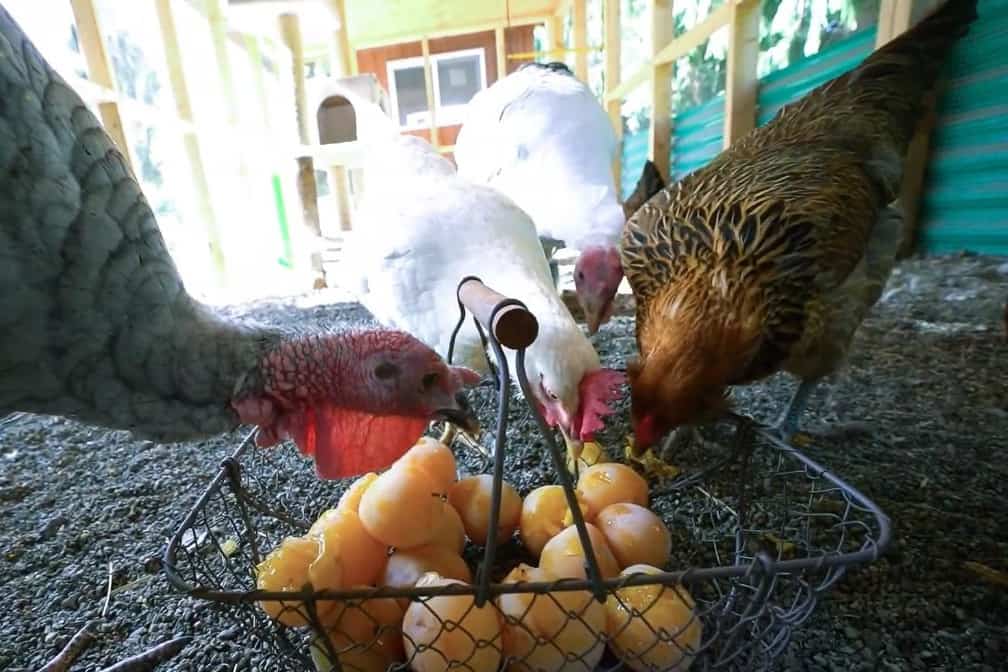
The plum is a drupe fruit, like the mango, with a single seed covered by a stone-like pit that may be easily extracted from the fleshly covering. This is why such fruit is sometimes referred to as stone fruit.
The stone pit or seed of the plum is inedible to chickens. While the majority of the fruit is safe for the chickens to eat, the pit should be discarded. This is due to the presence of a substance called amygdalin in the pit. When the seed is eaten, it breaks down into hydrogen cyanide.
As we all know, cyanide is a poison that is harmful to both humans and animals. It may cause digestive problems in your chickens if consumed in small quantities, but in large amounts, it can cause serious health problems or even death.
Now that you know this, make sure to remove the pit from plums and discard them properly before feeding them to the chickens. Since these backyard pets love foraging, they might try to peck at the plum seeds.
The rock hard pit does not decompose easily so make sure to toss it in the compost bin. You won’t have any problems related to plums this way.
Are Dried Plums Safe for Chickens?
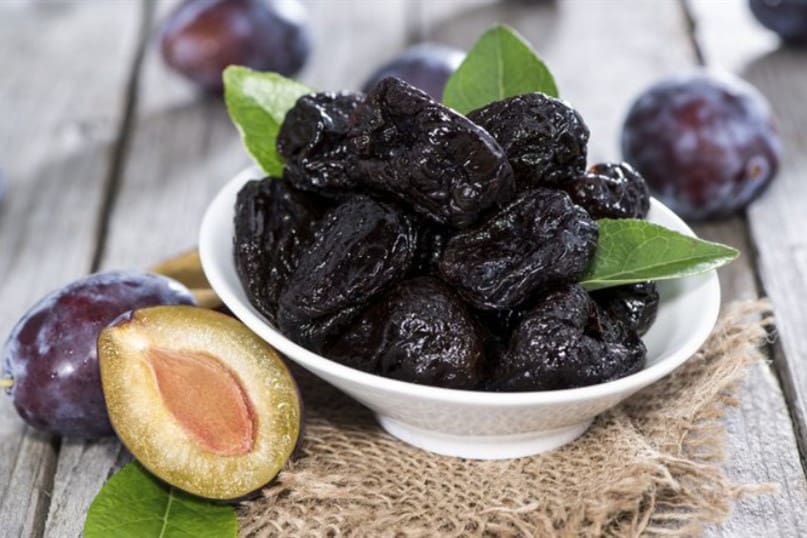
Prunes are dried plums that have been dried. Dried plums can be fed to chickens in moderation because they are high in nutrients. They should, however, be given sparingly because they contain a lot of sugar when compared to fresh plum fruit.
A cup of dried plums has 66 grams of sugar in it, whereas a cup of fresh plums has 16 grams. As you can see, the difference between a dried and a fresh plum is significant.
If the dried plums contain the pit, they can still be toxic to the chickens. You must make sure that the chickens only consume the prunes once the pit has been removed.
You can also combine dried plums with commercial feeds. In this manner, they’ll get the nutrients from the prunes as well as the nutrients from their standard diet.
How Should You Feed Plums to Chickens?
Plums are a delicious treat for chickens. They’re simple to cut and prepare as well as easy to digest. It’s usually better to feed them using a tray or a feeder to keep treats clean.
Plums are usually accessible in grocery stores or farmer’s markets all year round. Make sure to choose ripe plums for your flock of chickens, as they can be quite delicious for them. It would also be easier for them to eat the ripe plums.
To prepare this delicious treat for your chickens, you must:
- Wash the plums thoroughly after harvesting them from the orchard or purchasing them at the market. This will get rid of any dirt or pollutants on them.
- Remove the pit from the plum and cut it in half. To keep the chickens from pecking and eating the pit, toss it away to the compost bin.
- Now you must cut the plum into smaller pieces or cubes using a knife. The chickens will be able to eat more easily as a result of this. This will save the chickens from choking on it as well.
- Toss the plums for the chickens to consume. You can also give them the plum whole, but due to its firm texture, they are unlikely to be able to peck at it.
Mixing plums with other fruits is another easy way to treat your chickens. Strawberries, blueberries, and apples, in addition to plums, can be a great mix. Cut the fruits into small pieces and combine them in a large mixing bowl. After that, put it in a bowl and feed it to your chickens.
You might as well combine plums with their commercial feeds on other days. This way, the chickens will be able to taste a varied meal while also getting a complete nutritional combination that is good for their health.
You may also want to try giving frozen plums to your chickens, especially on hot summer days. You can slice the frozen plum and offer it to your chicken while you enjoy your ice cream. They’ll undoubtedly go crazy and devour them.
How Much and How Often Can Chickens Eat Plums?
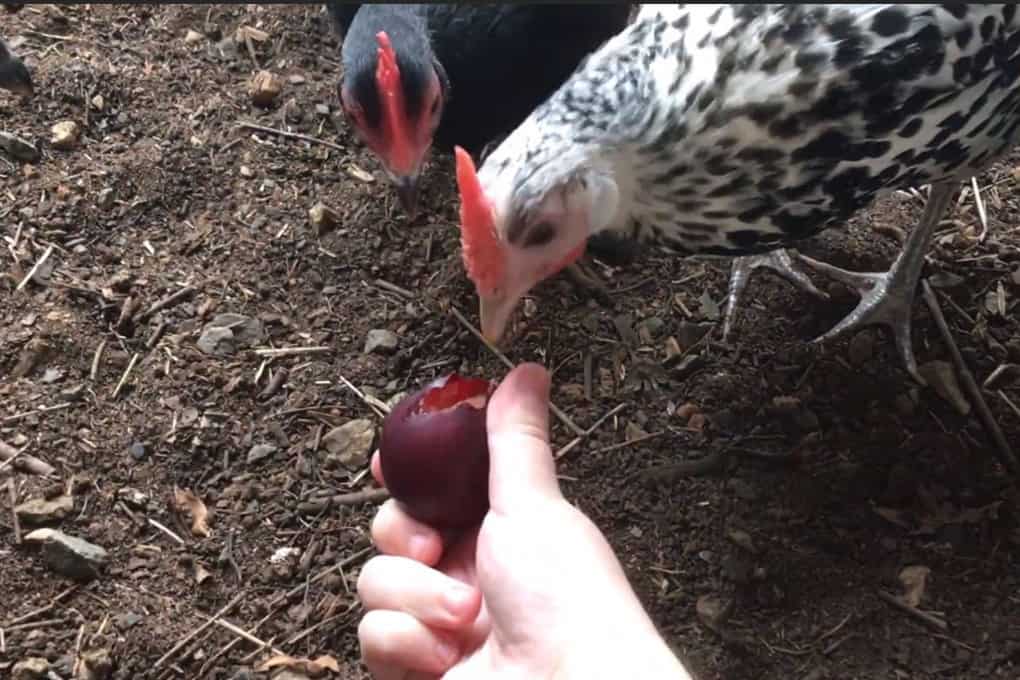
First, you must be aware that at least 90% of a chicken’s diet should consist of high-quality commercial feeds. These feeds are specifically formulated to meet all of their nutritional requirements. This is very vital for your flock’s health, especially when they’re laying eggs or molting.
Plums are high in fructose, sucrose, and glucose, all of which are sugars. Even though these sugars are good for people, they aren’t safe for your chickens. This is due to their inability to digest them properly. So, you should limit the number of plums you feed your flock.
Like most other fruits, plums should account for only 10% of your chickens’ total diet. No matter how old your chickens are, this is a general rule of thumb to follow as this is the recommended serving size for any treat.
In general, your flock of chickens should be able to consume the treats in under five minutes or so. A small piece of plum can be given to baby chicks. Make sure they’re sliced into little pieces so these cute tiny creatures won’t choke. For adult chickens, half a plum each is already good enough for them to enjoy.
Because plums aren’t one of their staple foods, they should not be given daily. Although they are high in vitamins and minerals, they do not provide enough nourishment to meet the chicken’s dietary needs. This implies that the chickens only need to be fed once or twice a week at most.
Be mindful not to overfeed your flock with plums and other fruits. This could cause them to stop laying eggs, lose their plumage, start pecking at one another, or have their overall health deteriorate.
Summary
When you provide plums to your chickens as a tasty treat, they get essential nutrients that ensure their digestive health, bone health, and normal organ functions. But, despite their many health benefits, plums should only be served in moderation.
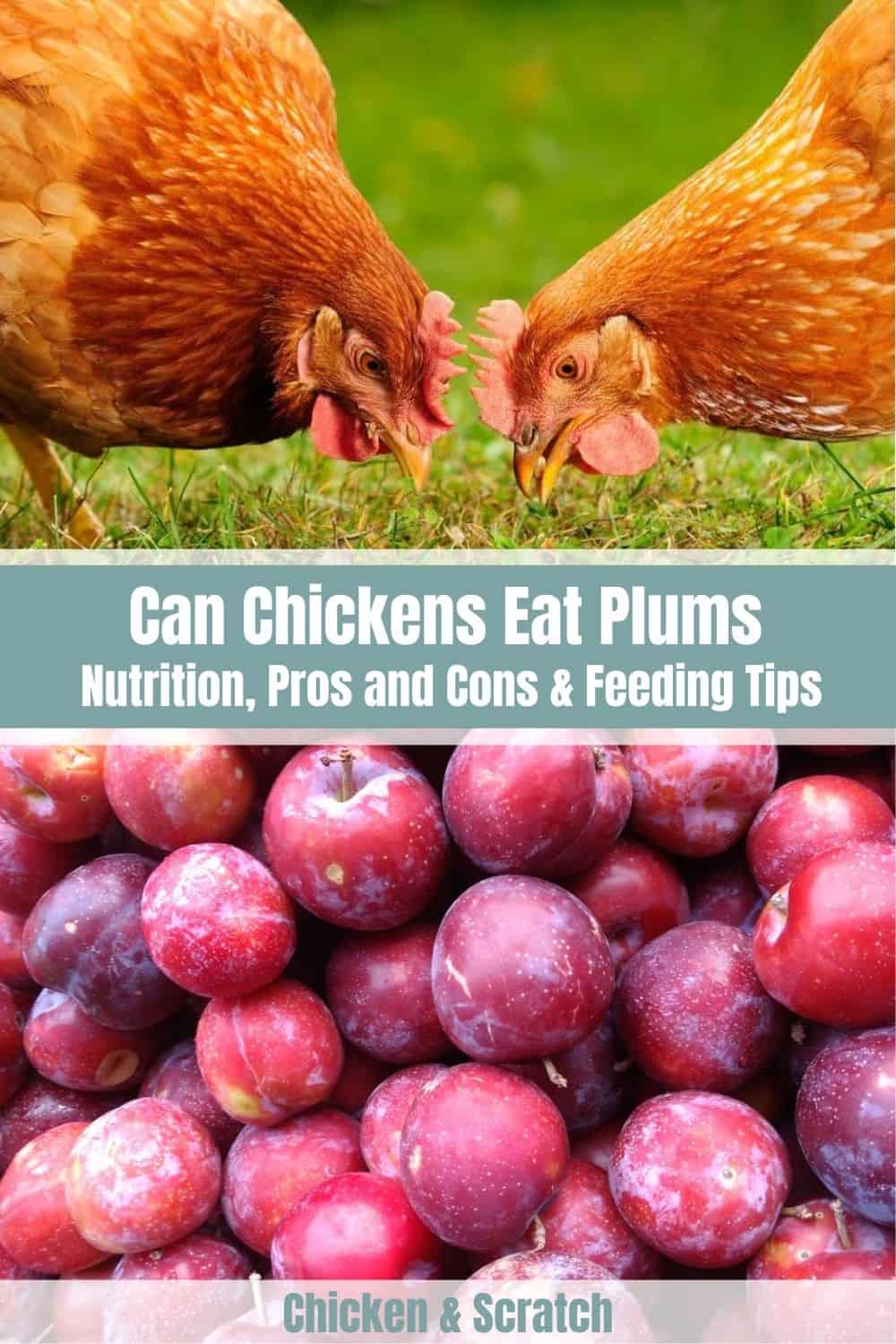

Joseph Hudson has been raising chickens for over 15 years. In 2018, he completed the Agriculture & Natural Resources program at Mt. San Antonio College. He currently raises over 1400 chickens on his 7.5-hectare farm. He keeps sharing his experience on raising healthy and happy chickens on Chicken Scratch The Foundry.
